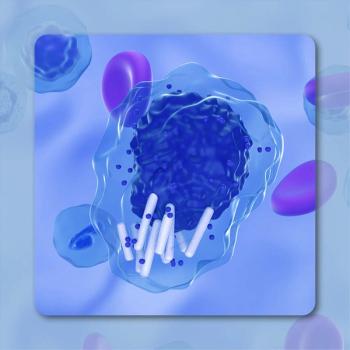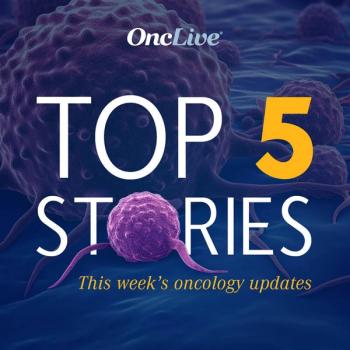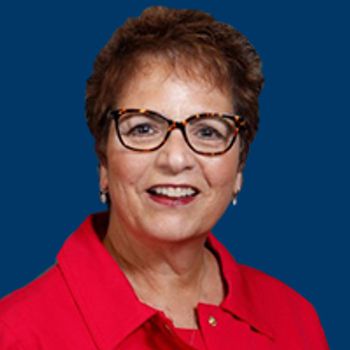
Survey Aims to Identify COVID-19–Related Health Care Challenges in Latin America
Outbreaks of coronavirus disease 2019 are on the rise in Latin America, with more than 4 million confirmed cases. In response to this health crisis, elective medical procedures, including cancer screening and care, as well as treatment for conditions beyond the virus, have been held.
Outbreaks of coronavirus disease 2019 (COVID-19) are on the rise in Latin America, with more than 4 million confirmed cases. In response to this health crisis, elective medical procedures, including cancer screening and care, as well as treatment for conditions beyond the virus, have been held.1,2
Procedures that may not be considered elective are also being postponed, and patients are now being diagnosed with more advanced cancer, which in many cases are at incurable stages. For 2018, the International Agency for Research on Cancer (IARC) estimated 1.4 million new cancer cases in Latin America with more than 600,000 cancer deaths. It is projected that by 2040, cancer cases will increase by 91.4% in Central and South America.3 Unfortunately, during the COVID-19 pandemic, diagnostic procedures, research activities, and treatment plans have been disrupted; the clinical implications of these changes are still unknown.
Despite the measures implemented by some Latin American governments, the number of cases continues to climb. Some presumed reasons for this include lapses in social distancing implementation, in addition to crowded living conditions in urban areas. To date, 2.35 million confirmed cases of COVID-19 infections have been confirmed in Brazil, with over 85,000 deaths.4 Similarly, 378,000 positive cases have been reported in Mexico with over 42,000 deaths, and over 234,000 cases in Colombia with reports of 7,975 deaths. Notably, experts warn that the peak hasn’t been reached yet in that region.
As of May 2020, Central and South America were considered to be the new epicenter of the COVID-19 pandemic. Clinics and medical offices have been forced to close, raising concerns that healthcare systems could collapse, as has already happened in countries such as Ecuador. In March 2020, many European governments suspended breast, cervical, and colon cancer screening programs.5 In the United States, cancer screening programs were considered to be low priority.6 Although these practice changes are reasonable in light of this crisis, the negative impact could directly affect mortality in patients with cancer. Among Latinos, the cancer screening rate is already low, and COVID-19 may significantly worsen this situation.
In a national population-based modelling study done in the United Kingdom, investigators used linked National Health Service cancer registrations and hospital administrative datasets to estimate how the COVID-19 pandemic has delayed the diagnosis of cancer during lockdown measures. Compared with pre-pandemic figures, the authors estimate an 8% to 10% increase in the number of deaths due to breast cancer. It is estimated that for colorectal cancer, the number will increase from 1,445 to 1,563 additional deaths, and for lung cancer, additional deaths will jump from 1,235 to 1,372, a 4.8% to 5.3% percentage increase, respectively.7
We have seen the severity of the impact of the pandemic on the United States. Despite clear data demonstrating the higher impact of COVID-19 in the Latino community, the effects of this virus in patients with cancer who live in Latin American countries is not well reported. Our study will focus on the effects of COVID-19 in oncology practices in Latin America. Data from the United Kingdom suggested that new cancer referrals decreased significantly due to concerns of contracting COVID-19; surgeries were delayed for more than 3 months across all stages of cancer and new chemotherapy practices were adopted by oncologists to avoid disruptions in cancer care.8 Our goal is to determine the extent of which the COVID-19 pandemic is affecting the care of patients with cancer in Latin America.
Understanding how the care of patients with cancer in Latin America has adapted during these unprecedented times, and the specific challenges experienced by providers caring for these patients, is essential to understand current limitations and disruptions in resource-limited healthcare systems. This survey will serve as an opportunity for hematologists/oncologists to share their perspectives on how COVID-19 has affected their communities.
The
References
- Horton J. Coronavirus: what are the numbers out of Latin America? BBC News. July 31, 2020. Accessed August 4, 2020. https://bbc.in/2DBbdo2.
- Richards, M, Anderson, M, Carter, P, et al. The impact of the COVID-19 pandemic on cancer care. Nat Cancer. 2020;1:565-567. doi:10.1038/s43018-020-0074-y
- Latin America and the Caribbean facts sheet. World Health Organization. March 2020. Accessed August 4, 2020. https://bit.ly/2ENQLB3.
- Andreoni M. Coronavirus in Brazil: what you need to know. New York Times. August 3, 2020. Accessed August 4, 2020. https://nyti.ms/3fu0s4m.
- Resuming bowel cancer screening post-COVID-19. Lancet Gastroenterol Hepatol. 2020;5(8):711. doi:10.1016/S2468-1253(20)30200-4
- Gorin SS, Heck JE. Cancer screening among Latino subgroups in the United States. Prev Med. 2005;40(5):515-526. doi:10.1016/j.ypmed.2004.09.031
- Maringe C, Spicer J, Morris M, et al. The impact of the COVID-19 pandemic on cancer deaths due to delays in diagnosis in England, UK: a national, population-based, modelling study. Lancet Oncol. Published online on July 20, 2020. doi:10.1016/S1470-2045(20)30388-0
- Sud, A, Jones ME, Broggio J, et al. Collateral damage: the impact on outcomes from cancer surgery of the COVID-19 pandemic. Ann Oncol. 2020;31(8):1065-1074. doi:10.1016/j,annonc.2020.05.009



































